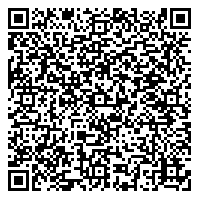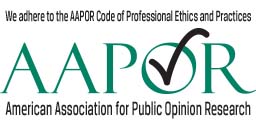Common Threats to the Efficiency and Productivity among Public Sector Employees in Jordan
DOI:
https://doi.org/10.25255/2306.8043.2021.9.2.20.30Keywords:
Efficiency, Productivity, Public Sector, EmployeesAbstract
The performance of employee's efficiency and productivity considered as significant indicators to determine competitiveness and productivity for institutions. The purpose of this study is to investigate the threats of efficiency and productivity among the employees in the Jordanian public institutions. The research method used is qualitative method by performing a semi-structured interviews with open-ended questions for (40) employees in the Jordanian public institutions. The results of the study show that threats of efficiency and productivity in public institutions employees are poor skill level, non-provision for rewards and appreciation, unawareness of latest project management techniques, prolonged purchase procedures, trade-off in cost and quality of equipment, rework and quality issues and distance between workplace and house. Formal, specialized and modified productivity improvement model recommended overcoming on these threats.
Downloads
References
Aldmour, R., & Obeidat, B. (2017). Factors influencing the adoption and implementation of HRIS applications: are they similar. International Journal of Business Innovation and Research, 14(2), 139-167.
Al-Dmour, R., Obeidat, B., & Almajali, D. (2015). The practice of HRIS applications in business organizations in Jordan: an empirical study. European Journal of Business and Management, 7(33), 37-51.
Almajali, D., & Al-Lozi, M. (2016). Determinants of the actual use of e-learning systems: an empirical study on Zarqa university in Jordan. Journal of Social Sciences (COES&RJ-JSS), 5(2), 172-200.
Alrowwad, A., Obeidat, B., & Al-Khateeb, A. (2018). The role of work/life balance and motivational drivers of employee engagement on the relationship between talent management and organization performance: a developing country perspective. Modern Applied Science, 12(11), 35-54.
Bi̇ri̇nci̇, N., & Telatar, O. (2021). The effect of social-economic variables on public sector performance: an empirical analysis on public expenditure in Turkey. Marmara Üniversitesi İktisadi ve İdari Bilimler Dergisi, 42(2), 202-222. DOI: 10.14780/muiibd.854314
Campbell, J.W. (2018). Efficiency, incentives, and transformational leadership: Understanding collaboration preferences in the public sector. Public Performance & Management Review, 41(2), 277-299.
Djaghballou, C.E., Djaghballou, M., Larbani, M., & Mohamad, A. (2018). Efficiency and productivity performance of zakat funds in Algeria. International Journal of Islamic and Middle Eastern Finance and Management, 11(3), 474-494.
Drumea, C. (2020). Work-related stress and subsequent productivity in a teleworking environment induced by pandemic-related confinement: Evidence from the Public Organizations. Ovidius University Annals, Economic Sciences Series, 20(1), 337-341.
Dunleavy, P. (2017). Public sector productivity: measurement challenges, performance information and prospects for improvement. OECD Journal on Budgeting, 17(1), 1-28.
Harvey, H.B., & Sotardi, S.T. (2018). The pareto principle. Journal of the American College of Radiology, 15(6), 931.
Jawabreh, O., Mahmoud, R., & Hamasha, S. (2020). Factors influencing the employees’ service performance in hospitality industry case study Aqaba five stars hotel. GeoJournal of Tourism and Geosites, 29(2), 649-661.
Khan, M.Q., Masood, S.A., & Qureshi, S.N. (2019). Analysis of low productivity in public sector automobile. Technical Journal, 24(1), 51-62.
Karajeh, H., & Maqableh, M. (2014). A review on stereoscopic 3D: home entertainment for the twenty first century. 3D Research, 5(4), 1-9.
Masa'deh, R. (2012). The impact of Management Information Systems (MIS) on Quality Assurance (QA): a case study in Jordan. International Journal of Information, Business and Management, 4(2), 93-110.
Masa'deh, R. (2013). The impact of information technology infrastructure flexibility on firm performance: an empirical study of Jordanian public shareholding firms. Jordan Journal of Business Administration, 9(1), 204-224.
Masa'deh, R. (2016). The role of knowledge management infrastructure in enhancing job satisfaction at Aqaba five star hotels in Jordan. Communications and Network, 8(4), 219-240.
Masa'deh, R., & Kuk, G. (2007). A causal model of strategic alignment and firm performance. Proceedings of the European Conference on Information Systems (ECIS), St. Galen, Switzerland, 7th-9th June.
Masa'deh, R., & Shannak, R. (2012). Intermediary effects of knowledge management strategy and learning orientation on strategic alignment and firm performance. Research Journal of International Studies, 24, 112-128.
Masa'deh, R., Al-Badi, A., Abu-Hlalah, A., Alkyal, R., & Zytoon, S. (2017). Factors affecting user’s satisfaction of tourism board website and its impact on continuous intention to use. International Journal of Business Administration, 8(4), 1-15.
Masa'deh, R., Alrowwad, A., Alkhalafat, F., Obeidat, O., & Abualoush, S. (2018). The role of corporate social responsibility in enhancing firm performance from the perspective of IT employees in Jordanian banking sector: The mediating effect of transformational leadership. Modern Applied Science, 12(7), 1-26.
Obeidat, B., & Altheeb, S. (2018). The impact of internal corporate social responsibility on job satisfaction in Jordanian pharmaceutical companies. Modern Applied Science, 12(11), 105-120.
Obeidat, B., & Nofal, R. (2018). The effect of transformational leadership on entrepreneurial orientation: the mediating role of organizational learning capability. Modern Applied Science, 12(11), 77-104.
Obeidat, B., Al-Khateeb, A., & Abu Abdallah, A. (2019). Reviewing the mediating role of work/life balance and motivational drivers of employee engagement on the relationship between talent management and organization performance. Journal of Social Sciences (COES&RJ-JSS), 8(2), 306-326.
Obeidat, O., Hadidi, A., & Tarhini, A. (2017). Factors affecting strategy implementation: a case study of pharmaceutical companies in the Middle East. Review of International Business and Strategy, 27(3), 386-408.
Prasetyo, P.E., & Dzaki, F.Z. (2020). Efficiency performance and productivity of creative industries. International Journal of Advanced Science and Technology, 9(6), 122-132.
Rožman, M., Treven, S., & Čančer, V. (2017). Motivation and satisfaction of employees in the workplace. Business Systems Research: International journal of the Society for Advancing Innovation and Research in Economy, 8(2), 14-25.
Shannak, R., Al-Zu’bi, Z., Obeidat, B., Alshurideh, M., & Altamony, H. (2012). A theoretical perspective on the relationship between knowledge management systems, customer knowledge management, and firm competitive advantage. European Journal of Social Sciences, 32(4), 520-532.
Shannak, R., Obeidat, B., & Almajali, D. (2010). Information technology investments: a literature review. Proceedings of the 14th IBIMA Conference on Global Business Transformation through Innovation and Knowledge Management: An Academic Perspective, Istanbul-Turkey, 23rd-24th June, pp.1356-1368.
Smarandache, F., Ricardo, J.E., Caballero, E.G., Vázquez, M.Y.L., & Hernández, N.B. (2020). Delphi method for evaluating scientific research proposals in a neutrosophic environment. Neutrosophic Sets and Systems, 34(1). https://digitalrepository.unm.edu/nss_journal/vol34/iss1/26
Tarhini, A., Alalwan, A., Al-Qirim, N., & Algharabat, R. (2018). An analysis of the factors influencing the adoption of online shopping. International Journal of Technology Diffusion (IJTD), 9(3), 68-87.
Vadrale, K.S., & Katti, V.P. (2018). A comparative study of employee productivity analysis of public and private sector banks in India. Asia Pacific Journal of Research, 1(86), 62-67.
Wushe, T., & Shenje, J. (2019). The relationship between social media usage in the workplace and employee productivity in the public sector: Case study of government departments in Harare. SA Journal of Human Resource Management, 17, 10.
Yassien, E., & Mufleh, M. (2017). The impact of ERP system's usability on enterprise resource planning project implementation success via the mediating role of user satisfaction. Journal of Management Research, 9(3), 49-71.
Zawaideh, F., Al-Zoubi, M., Abualoush, S., & Kanaan, R. (2018). The impact of knowledge documentation process as an intermediary variable among knowledge acquisition process, organizational culture and human capital. Modern Applied Science, 12(11), 151-168.








 a Creative Commons Attribution 4.0 International License.
a Creative Commons Attribution 4.0 International License.